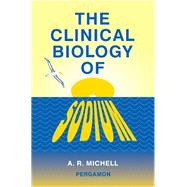Clinical Biology of Mammalian Sodium Metabolism
, by Michell- ISBN: 9780080408422 | 0080408427
- Cover: Hardcover
- Copyright: 12/1/1995
The physiological and clinical importance of sodium rests on four fundamental features: sodium transport establishes gradients which underlie other essential transport processes, the responsiveness of excitable tissues, and protect cells from swelling; it is also a major demand on the available energy supply (ATP); sodium is the osmotic skeleton of the internal environment; sodium reabsorption is the foundation on which much renal function rests; and sodium excretion enables the kidney to be the main long-term regulator of blood pressure.
Nephrologists, gastroenterologists, cardiologists, obstetricians, anaesthetists and internists treating a range of diseases frequently need to manipulate sodium balance to the advantage of patients; often this is a pivotal aspect of their therapeutic strategy.
Accounts of the interlinked roles of sodium have tended to remain separate. This book aims to reconcile these diverse aspects of sodium and deepen understanding among clinicians and basic scientists of its importance and the diseases and drugs which affect it. The book draws on insights from various species of primary interest in human and veterinary medicine.
Nephrologists, gastroenterologists, cardiologists, obstetricians, anaesthetists and internists treating a range of diseases frequently need to manipulate sodium balance to the advantage of patients; often this is a pivotal aspect of their therapeutic strategy.
Accounts of the interlinked roles of sodium have tended to remain separate. This book aims to reconcile these diverse aspects of sodium and deepen understanding among clinicians and basic scientists of its importance and the diseases and drugs which affect it. The book draws on insights from various species of primary interest in human and veterinary medicine.






